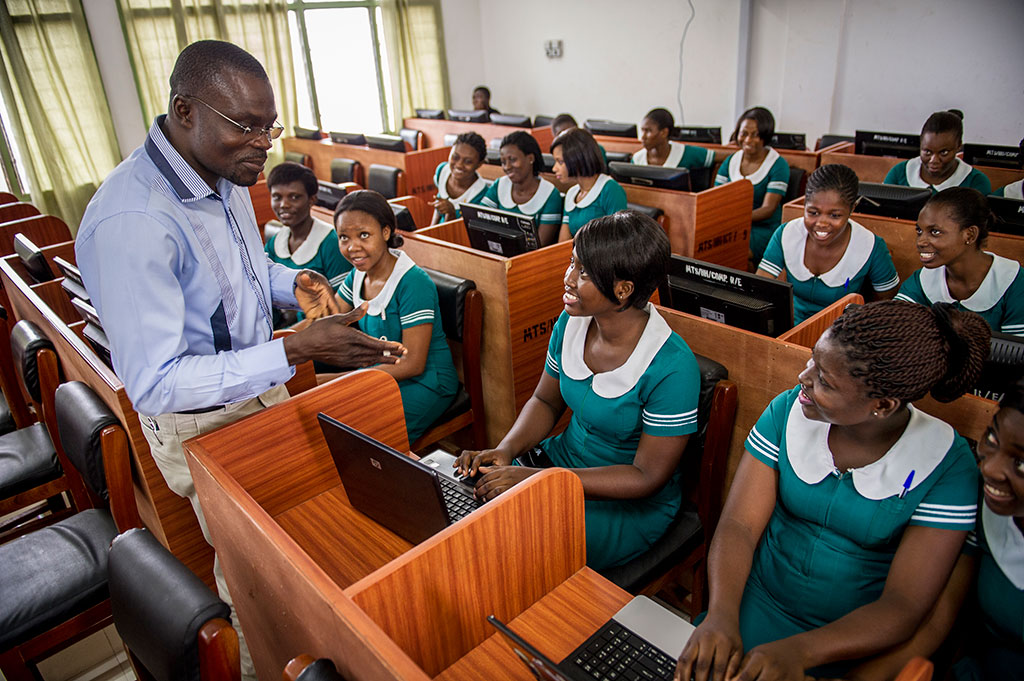This blog was originally featured on the mPowering website.
Hohoe, Ghana—To final year midwifery student Mercy Adza-Boon, accessing learning modules outside of the classroom with her mobile phone or laptop is “a dream come true.”
Thanks to an innovative eLearning/mLearning program by the Human Resource Division of Ghana’s Ministry of Health (MOH), her dream is now a reality. The program is aimed at expanding learning opportunities for students in health institutions across Ghana within the next five years.
The introduction of the eLearning program at her school enables lessons to be uploaded on the Intel SkooolHETM platform. They can then be accessed by Mercy, her peers and tutors in the computer labs as well as on their personal computers.
Previously, students at Hohoe Midwifery Training school struggled to catch the attention of their tutors in an average class size of 470 students, making learning frustrating. By contrast, when asked to sum up her impressions about the usefulness of the new program, Mercy says: “it’s a quick approach to learning.”
The initiative is being funded under USAID’s flagship Maternal and Child Survival Program (MCSP), which is tasked with introducing and supporting high-impact health interventions with a focus on 24 high-priority countries, including Ghana. Its ultimate goal is to end preventable child and maternal deaths within a generation.
MCSP aims to ensure that those women, newborns and children most in need have equitable access to high-quality health care services. The Program is collaborating with UNFPA, Intel, and the World Health Organization through content development–which will be openly licensed soon—as well as the provision of an electronic platform to realize this vision.
The program, which has already been piloted in six schools, will be initially scaled up to 10 midwifery and 2 community schools by the end of this year. By 2017, the program is expected to be extended to 83 midwifery, nursing and community health and selected allied health training institutions.
To set the program in motion, the Ghana Investment Fund for Electronic Communication—in collaboration with the MOH—provided desktop computers and accessories to all midwifery schools under the program. In addition, more than 7,000 laptops were procured for students and tutors to “rent to own.”
The MOH expects the program will reduce the overwhelming workload placed upon health instructors and will curtail high student-instructor ratios—issues that are compounded by realities such as outdated teaching materials and methods.
“Though not everything in the curriculum is covered under the eLearning program,” says Mercy, “the fact that it is convenient and easy to use makes it easy to combine with classroom lessons.”
A national eLearning integration program is being drafted to ensure standardization of the program modules in pre-service and in-service education. And the MOH intends to overcome key IT challenges, such as internet connectivity, by increasing technical support to the schools.
Ms. Narki Doku, the Principal at Hohoe Midwifery School, speaks positively about the potential of the program: “It is often difficult to memorize the textbook definitions of complex clinical procedures as compared to the eLearning versions. Because it’s simple and tells you exactly what to do in any given situation, you’re able to explain to students better.”

